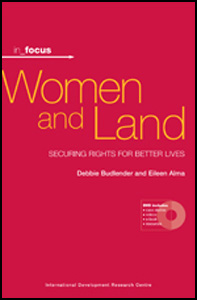About IDRC
A Crown corporation, we support leading thinkers who advance knowledge and solve practical development problems. We provide the resources, advice, and training they need to implement and share their solutions with those who need them most. In short, IDRC increases opportunities—and makes a real difference in people’s lives.
Working with our development partners, we multiply the impact of our investment and bring innovations to more people in more countries around the world. We offer fellowships and awards to nurture a new generation of development leaders.
What we do
IDRC funds research in developing countries to create lasting change on a large scale.
To make knowledge a tool for addressing pressing challenges, we
- provide developing-country researchers financial resources, advice, and training to help them find solutions to local problems.
- encourage knowledge sharing with policymakers, researchers, and communities around the world.
- foster new talent by offering fellowships and awards.
- strive to get new knowledge into the hands of those who can use it.
In doing so, we contribute to Canada’s foreign policy, complementing the work of Global Affairs Canada, and other government departments and agencies.
Resources
Displaying 116 - 120 of 324Women and Land. Securing Rights for Better Lives
Includes experiences from the field (East Africa, Malawi, Cameroon, Senegal, Colombia, Pakistan). Lessons learned include participation-oriented research methods are recommended. Merely passing legislation is of little effect without the necessary resources for implementation, monitoring reforms or effective sanctions. Crucial to consult and involve women when designing reforms and monitoring their implementation. Addressing land injustices requires varied approaches. Vital to establish and maintain links among research, policy, practice and people.
Women and Land
Here it is an important book on Women's Land Rights, published by the International Development Research Centre.
Building on the learning route : the selected 4 innovation plans; capacity building paper
The aim is for participants to develop an innovation plan focused on advocacy for women’s access to and control over land, employing ideas and tools acquired during the Learning Route of the International Land Coalition (ILC - www.landcoalition.org) programme. Four proposals for innovation plans are provided as examples.
Participatory Geographic Information Systems (P-GIS) for natural resource management and food security in Africa : ict4d article, August 2010
Access to land is highly dependent on social status (ethnicity, social class) and family status (position in the household) of individuals. Women's access to land varies according to eco-geographical zones and as well, is dependent on their particular position and rank in the family household. Despite a formal recognition of the right of women to land in the Senegalese national Strategy for Gender Equality and Equity (SNEEG), social or cultural claims are always made to justify their limited access to resources.
Final technical report / The Process of Land Seizures in one Sub-Region of Colombia and its Effect on the Peasant Movement During Armed Violence
For nearly one year and a half the project research team, coordinated by a member of
the Area of Historical Memory of the CNRR and with technical assistance from IOM,
addressed the relationship between internal violence and the agrarian problem in the
Caribbean coast of Colombia, where for several decades armed conflict, internal forced
displacement of rural populations and violent land seizures have been an extremely
strong phenomenon. It also collected multiple memories on the rise and fall of one of







